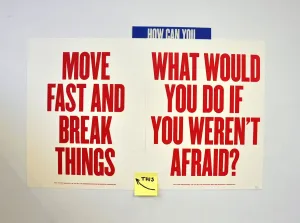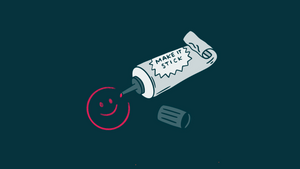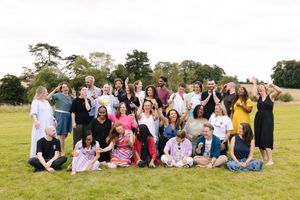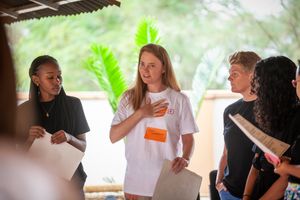
This is part of a series that focuses on how our Venturing practice takes a systemic and relational approach to designing funds, managing portfolios, and growing ideas. Across four blogs we'll be showing how that approach has played out in the real world with stories from our work.
“I wish person [x] would stop [y], so we could just get on with the work”.
“If we didn’t have to deal with [z], we could achieve so much”.
How many times have you said (or thought) versions of the above?
There’s nothing more human than believing our elegant plan could achieve so much change and impact, if only x, y and z weren't true.
At Brink, we know that people are complex, their behaviour matters, and the world is full of messy systems that have to be navigated if we’re to tackle huge global challenges in health, education, climate and other sectors.
And crucially, we also know that these aren’t things that you have to deal with before the ‘real work’ starts. Navigating these factors is the real work of making impact happen in the real world.
This isn't a hypothetical or a hunch. Just in the last six months, we've seen repeatedly how these factors have made serious impacts on the real world. From the chaos surrounding OpenAI’s board governance, to the Post Office scandal in the UK, it's clear that the design and construction of our future is being influenced by a complex mix of philosophies, worldviews, incentives and politics; and that we must work to understand and navigate these complexities if we hope to steer that future in a positive way.
We call this work behavioural innovation, and our mission is to equip people all over the world with the language, tools, evidence and knowledge to do it well.
When it’s working, Brinksters and our partners tell us that behavioural innovation has made them wiser in two ways. It has built systemic wisdom, or their ability to understand everything going on in a system and how to create change within it. And it has built their relational wisdom, or their ability to understand what makes others tick, and how to work with them towards a shared goal.
It’s the wisdom to ask questions like:
- How might we lift our gaze to understand the incentives, needs and blockers in the system?
- How might we find the leverage points and behaviours to have the largest effect on shifting the system?
- How might we create the context for new patterns to become habits?
- What do you need to listen, build, share and learn (and enable that in others)?
- How can you find out what is going on for the people you are working with, and how might their needs shape their ability to listen, build, share and learn?
- How can you understand and shape what is going on between the people you are working with so they can listen, build, share and learn together?
Across three blogs we're going to share some stories of how we’ve tried to harness our systemic and relational wisdom in Brink’s Venturing practice. Venturing is our discipline of designing funds, managing portfolios, and working with ideas to help them test, learn, iterate and grow.
Each story starts with a question, and then describes how we used approaches from behavioural innovation to tackle that question.
Our big takeaway is this. Too often, we expect money and innovative ideas can be pointed at our biggest problems, and solve them. When it doesn’t happen, we wonder why talented, motivated people couldn’t make change happen.
It doesn’t happen when we see the world according to our neat and elegant plan, rather than a messy conglomeration of people and systems with incentives, biases, habits and defaults. This lens gives us a unique way to harness money and ideas for radical and enduring change.
Read the stories
Scaling impact in the real world
Story 1: Directing money to the right lever, to help people access oxygen
Story 2: Building high-trust teams to test edtech during the Covid-19 pandemic
Story 3: Bringing everyone onboard: using virtual reality in the International Criminal Court





